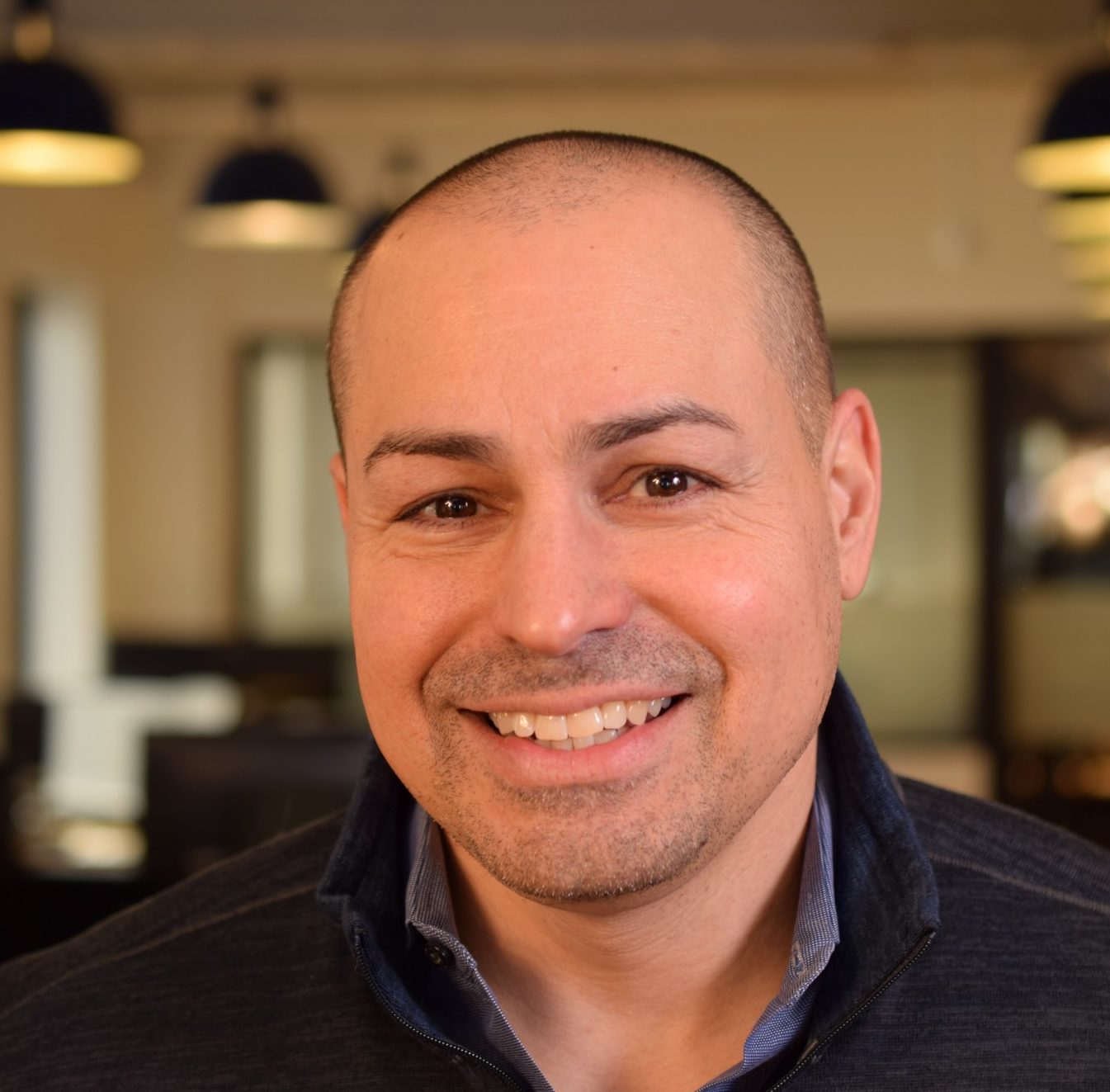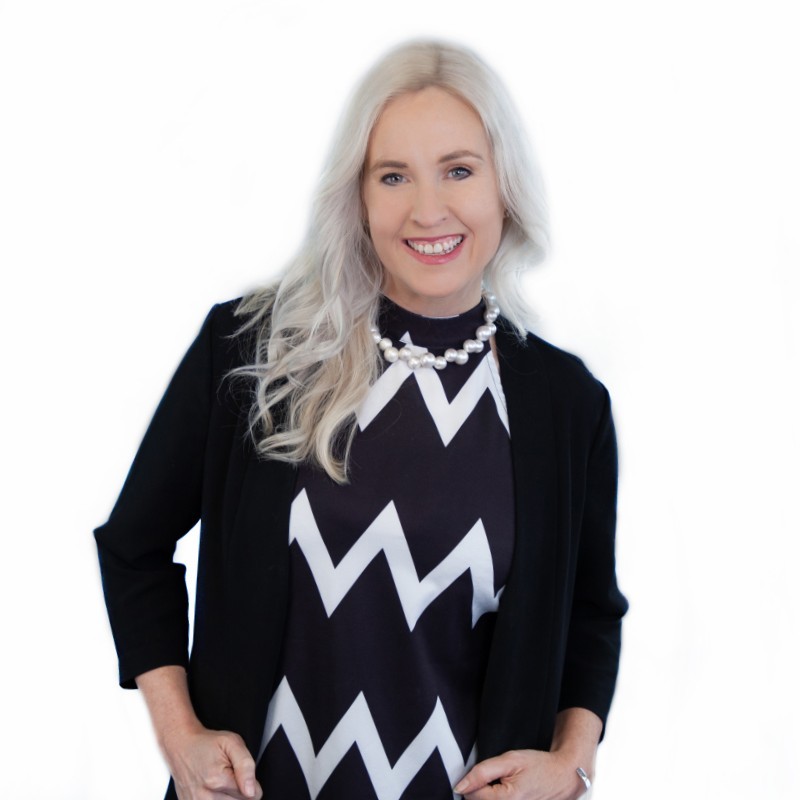There are lots of new digital tools out there to help leaders understand the humans they work with better. Kelly Gliatta is the VP of Talent at WorkWave and is trying to figure out the best way to use them.
Understanding the science of motivation
Kelly and her team use a tool called Caliper that helps the employee and their team understand what motivates them. Digging deep into motivation helps everyone make sure the person is in the right role, and how to encourage them. It also gives feedback on communication styles. It has helped their team members understand the difference in how everyone communicates. They even have everyone’s communication styles listed in their profile on our company intranet.
For example, people in the customer service field need to be motivated by helping others, learning, and teaching. But the structure of their day is set by others, so they shouldn’t feel the need to control their own schedule. Having a low ego is also extremely beneficial.
The future of digital and human collaboration in HR
Kelly sees humans playing an important role as they rely more on digital tools to help develop people. Humans are still best at judging someone’s emotional intelligence and sensing their ability to collaborate. Kelly also describes the feeling of being “smitten” with a particular candidate that is hard to replicate in digital tools. The emotion and energy derived from collaboration is also uniquely in the human sphere.
Digital tools will continue to provide new opportunities for HR teams who are focused on improving human interactions and capabilities. It will help build more self-awareness and team-awareness and helps to lead the way to a better future.
Links:
Welcome back to The Digital Workplace podcast. Today our guest is Kelly Gliatta. She is the VP of talent for WorkWave. Hey, Kelly. How are you doing today?
l’m well. How about you?
I’m doing good. You’re well, but you told me you’re a little cold today. This work from home thing has its downsides, right?
It certainly does. The heater broke last night, and we’re making do today.
So yeah, we should factor that in, like what happens when the heating goes off in the office, you send everyone home. But if the heating is off at home, do you go to office? What do you do?
Right now, I thought about that, but then I can’t get the heat fixed.
True. Well, before we get too deep into this, let’s do our captcha question to prove your humanity. Your question, Kelly, is what is a future hobby that you would like to start?
I would love to start photography. I am by every definition, an amateur photography person. I have a great camera that I got for my birthday a few years back and have done next to nothing with it except take random pictures of nature that I think are good. And then when I look back at them, I’m like, yeah, not so much. I’d love time to get into that the right way.
That sounds like a good one. For me, right now I’m into learning piano again. I learned as a kid, and then I have gone through different phases of that. So that’s where I’m at now. I feel like if I had to pick another one to add in, it definitely would be some kind of language learning. I’ve traveled a lot, but never really immersed myself in a new language. And I feel like that’s the next thing I really want to get into.
That’d be amazing. I’m so just jealous of people that multilingual. It’s such a wonderful thing. I’m really disappointed that I didn’t seize that opportunity when I was younger. It seems like it’s so much harder to get into as you get older.
Yeah. And I want to test that out and experiment how much harder is it now versus being younger, too. Anyway, great. You are a certified human. That’s good. So tell us a little bit about WorkWave and what you do there.
Yeah, so we are a software company. And our software is mainly designed for field service companies. So like lawn care companies, pest control companies. And they use our software to run their business and route their vehicles and keep track of appointments, process their credit cards, really just everything they need to stay up and running. And I am their VP of HR, or head of talent, as we like to call it. So I oversee everything from the HR lens and office management and really internal customer service, making sure everybody that works there is happy.
And how long have you been in this particular role?
In this role, about five years. I’ve been with WorkWave for, this year, I’ll be 22 years.
So you’ve had a chance to see things through the pandemic. You obviously have been with WorkWave for a long time and knew what it was like to be in the office. And then now we’re in this big experiment of getting through things. What was that transition for you like? Was it like others were as there were some hiccups, but we figured it out? Or was it really difficult? Were you ready for it? What was that experience like for you?
I think from a technical standpoint, it was really easy. And we’re a software company. So for us to say, boom, go work from home, that was a seamless transition. I think the two biggest factors we had were how to just make sure we’re all communicating using the same channels. We have so many channels we use to communicate. Consolidating those was a biggie. And the other part was how to replace those things that were organic conversations. So running into somebody in the kitchen, seeing somebody that you’re about to go into two separate meetings, but you see each other in the hallway and strike up a conversation. It’s been hard to find ways to duplicate those organic meetups that happened during the day.
Yes, serendipity does not happen in digital workplaces very much, right?
Exactly. Right.
Yeah. So how would you describe your state now? We’re basically right at a year into most of the transitions that people have made. Do you feel confident like you’ve made a lot of good decisions, and you’re ready to go further? Do you feel comfortable where you are? Are you getting back to the office? What’s your stance right now?
Yeah, we are. I think we’re all definitely, it’s amazing to see how much we’ve been able to accomplish being 100% remote, and for as much as we miss seeing each other every day, that’s always a big thing you hear is, oh, I haven’t seen your face. I see your face but not in person. And being able to collaborate in a shared space and that energy that you get of being in a shared space, we all miss. But in terms of productivity, that hasn’t skipped a beat. Once we can go back in and it feels safe to do so, we’ll go back in in a hybrid sense. We can still take advantage of the upsides of having a little more work/life balance on certain days, but be able to leverage that collaborative space and feel that energy at least a couple days a week.
Yeah, that’ll be great to be able to build that back in for sure. Let’s talk about motivation because I know it’s a topic that you are passionate about, you guys have done a lot of work into it, and I feel like you’re pretty advanced and learning about motivation of humans. So let’s just start off with what was, especially at WorkWave, what was your general approach to motivation? And let’s just say, even before you started in your current role, before five years.
Yeah, a long time back. Geez, it’s got to be about 10 years ago now. It feels maybe longer. But time is a very weird thing right now, timing. But quite a while back, we had connected with a company that did assessments, so kind of like a personality assessment. But not like a Myers Briggs, it’s not designed around leadership capability, necessarily. It’s more just designed around your natural inclinations, which is a fascinating topic for us because we find, anybody in any position, if you do what you love, and you’re naturally motivated to do most of the responsibilities of the role, you’ll just succeed at it without really even trying, because it’s what you’re naturally wired to love to do.
So the thought was, if we can find a way to understand if someone’s going to pursue or join us doing a role that they’re naturally motivated by, we’ll have a much higher percentage of having top performers in the company. So we collaborated with a company called Caliper. And for candidates that we’re interested in, we have them take this assessment. It’s not timed. It’s just asking a billion questions about what do you like to do? Would you like to do this or that, or this or that? And at the end, it gives us a really great sense of their sociability, how much they love to manage their day, or have somebody else manage their day, how much they love to problem solve, their sense of urgency, it’s really fascinating. And it’s all just kind of how somebody is at home on the weekend by themselves, it’s not their work, it’s truly who they are at their core.
What’s something you learned about yourself through taking that assessment?
Well, part of it I already knew. But the other part was the kicker. So this sociability score on its own is around 8%. It’s super low, which, anytime there’s just a party to go to for a family or friend or something, I can’t stand it. I don’t want to go. I just want to sit in the corner. My husband’s quite the opposite of me. So that’s always been a talking point of how social he is and how much I’m a homebody. But at work, I’m the complete opposite. I love talking to everybody all day, I will roam through the office or even virtually reaching out to people to see how they’re doing and stay on calls way past when we’re need to. And I could never quite figure out why. Why am I social in one scenario, not in another?
But it’s because I’m motivated by so many other things that are tied into sociability in the workplace, like problem solving. My empathy is super high. I love to build relationships. I love to teach and learn. And so I don’t mind breaking out of my shell in those situations because there’s so many other things I’m fueled by. And that’s an interesting point that a lot of our team members have come into. You think, well, I don’t like X so you think you won’t be good at the job. But you don’t realize if you’re motivated by so many other factors, you may actually like it anyway. It’s not going to be holding you back as much as you think it will.
Give us another example of maybe a position you’re currently hiring for or looking for and what about that assessment that comes in are you paying attention to? What are some red flags? Or what are some areas like, wow, this person may be great for this role?
Yeah, so a good one and a generic one is think of customer service. There’s just so many different areas. So we have customer service reps that are helping our clients with our software. And there are certain things that are non-negotiable, right? You have to like fast paced. You have to love to learn. You have to love to teach. But there’s other factors that you’d think you have to be great at instinctively, but you don’t. So you don’t necessarily have to have really strong self structure skills because the day is structured for you. That phone’s ringing no matter what, the amount of time you can stay on the phone. So there’s a certain amount of structure built into the day. And you’d be amazed how many people are great at the job that are actually very hard on themselves, or their ego strength may be on the lower side. And you would think, man, somebody’s got to have a really strong sense of self to be listening to somebody calling in and voicing concerns and complaints and having that resiliency to solve that problem. That’s not the case. They’re so motivated by giving of themselves and helping someone else and just wanting to make someone else happy before themselves, that they’re actually fantastic at the job, even though they may not be super strong in that area.
That’s really interesting to think about those little motivation pieces that you don’t think about as it comes through. So as you’re assessing candidates coming in, did you treat this more of a discarding some candidates for certain role if they don’t meet some of these things? Or is it more like you talk with them ahead of time about and say, hey, you seem to be low in this area, this might be an issue coming at it? How do you approach that?
Great question. So a big part of it for us is we don’t give them that assessment until we’ve gone through the whole interview and feel like they’d be a great fit for the role. So assessment isn’t coming in front of the interview. The assessment is more of a validation that we did our job the right way during the interview process. And if something comes up on the caliper results that we say, alright, that could be concerning, not everything that’s concerning is necessarily a deal breaker, right? We have our stuff, we all have our stuff that we’re not necessarily great at. But it’s a matter of is the manager okay with that. They may say, sure, I can coach them to be more organized or I’m not worried about that. I have other people in the team really strong on that, so they don’t necessarily have to be. So that’s why we say to folks when they go to take caliber, don’t worry, it’s not a pass fail. It’s just how you’re wired. There’s no right or wrong. It’s all part of us figuring out if the dynamics of that individual play well into the dynamics we need for that person joining the team.
Let’s zoom out on this discussion, particularly talking about technology and we’re talking about recruiting and hiring. As it comes to using technology in a digital workplace, like what you all have built, how is it that, you’re talking about using technology, getting some feedback, getting assessment score, but then also bringing in that human element of maybe somebody saying, yeah, maybe they can do this, maybe they can’t, but they’re judging that based on their own human experience. Is that the way you see things going forward with most of what we call HR today and technology of finding that right blend of how we can use these advanced tools, but also bringing in our human intuition? What’s your perspective on that?
I do, because I think no matter how much you have somebody take a skills assessment or see how fast can they type, how much do they know a certain technology or a programming language, whatever that hard skill is, you can’t underestimate the importance of emotional intelligence. And you can’t underestimate the importance of their ability to collaborate and click with a team. That is so huge to their ability to thrive in any role and their motivation to do it. You may have somebody that, how many times do you have people that go to school for one thing, they get their degree in something because they think it’s what they’re going to love. They graduate, get that first job, and they’re like, oh, shoot, I don’t really like this. I thought it was everything I was motivated by. But I don’t actually like doing this. And that’s part of what this is. It’s a little bit of a validation of, I know you applied for this seat and you are saying you think you’re going to like this job, but we really know what the ins and outs of this role are going to be. And we’re doing our assessment to make sure this is truly something you’ll be passionate about.
What’s another area you feel like technology is going to help more in the next five to 10 years? So like, if motivation is one area where you guys feel like you’ve developed a good partnership with the technology that’s out there. What’s another area that you’re like, we’re relying on human intuition a lot right now and human wisdom and we could use a little bit more data backing up the assumptions that we’re making?
I think the other big part is communication style. So many different quizzes out there around what’s your communication style, and this assessment tool actually gave us insight into that as well. But the number of times that we see, I think, from an HR standpoint, when we get asked to be pulled into situations of team members not clicking, communication gaps, frustrations, 9 times out of 10 there’s a difference in communication style. One person’s more direct than another. One person uses emotional language instead of supportive language. And they don’t quite know how to read each other, and therefore, make false assumptions of what the other person is trying to say or misinterpret tone, which is so big when we’re all remote. It’s so easy to look at an email and read it in a tone that you’re putting on the communication, but certainly knowing that person’s tone. And there’s a ton of technology that can help people understand their communication style and someone else’s and use that as a way to level the playing field a bit and educate, too.
Yeah, I think we’re starting to see the early days of a lot of that with some, just in the fact we have predictive text now that as you’re typing something, you can see something’s coming up, you see more tools that are in Slack. We’ve interviewed some people that it can test your language for some biases that you’re putting out. So I think that’s reasonable to assume that in the next few years, some of these communication styles, you could get a message that pings up and says, this could be taken a way that you don’t intend to. Are you sure you want to send this? Things like that would be great.
Exactly, which it could be huge for business. Wouldn’t it just be amazing? I feel like for any kind of industry, that’s the biggest disconnect is what did you mean by that?
And what is your message open to interpretation to, because you think it means one thing, and maybe one out of four people would agree with that. But it could be taken so many different other ways, too, depending on how that person is, what the context they’re in, what mood they’re in when they woke up. So all sorts of things, right?
Yeah. And we were actually, I was listening to a webinar the other day of easy things you can do to improve your emotional intelligence, your communication style. And one of the top ones was the number of people that send an email to themselves, and then go back and look at what they wrote about 20 minutes later and say, oh, shoot. I didn’t realize it was going to come across that way and wind of rewriting it before they send it out.
Yeah, I think you’re totally right. We could use a lot of help from technology in that area. And that’ll be great as it comes forward. Let’s talk a little bit about what’s a line we shouldn’t cross? We’re always wanting to rely on technology where it helps and where it’s going to be beneficial for humans that are there. But in your world, do you have any hard lines you’re putting down and saying, no, we’re not going to use technology for these things? Or we’re still going to rely mostly on humans for these things? What are some of those areas for you?
For us, one part of it is that focus on emotional intelligence. For as much as you can help people understand what they’re motivated by, having a discussion with somebody directly to talk through their feelings, why an event that happened really struck them a certain way, helping them unravel that and understand the root cause of an issue. I think a lot of that dialogue, you can’t duplicate. You can get all the reports you want to say what may have triggered it. But there’s still so much direct conversation that has to go on to make sure somebody knows how to read and apply and interpret all of this information we’re getting from technology. And I think the other part that you can’t duplicate is that sense of collaboration. There’s no amount of Slack or anything that duplicates what happens when you’re in the presence of other people, and you’re brainstorming a solution and reading, seeing that body language or eye contact, there’s just a different energy there that I don’t think we could ever fully duplicate. Or even if we want to.
That’s true. Are there times when you’ve seen the candidate, and they’ve been in a situation or somebody you just hired, and you see them in a situation, and there’s something you just feel, you just see like, wow, this was great. This is the perfect person for this role, or you see those things. And like you said, it’s hard to put into an algorithm what you felt or why it was but you just know so much that was true, right?
And I have four names that come to my mind of individuals that I met in an interview, and they had little background to do the job. But you could just tell they were just naturally eager to learn and do it and had such a positivity about them. And just things clicked. They were answering your questions before you even asked them, knew what their shortcomings would be, and what they would do to fill that gap. And you just knew they were destined for way more than they were even coming in for. I always used to joke. I’m like, a lot of interviewing feels like speed dating, and you almost want to leave that part of the interview like, oh, I’m smitten. I think that’s something, no matter what technology you use, you can’t duplicate that feeling of needing somebody for a position and saying you’re it, you’re the perfect person.
Yeah, I’m trying to imagine a computer system coming back and being smitten. What does it look like?
We actually used to do, and we’ll go back to once we’re able to, used to do in-person career fairs. And the whole point was, we said to everybody in the area, just come in with your resume. Doesn’t matter if you fit all the criteria or not, we just want to meet people. It was incredible the number of hires we got from that, and they were typically, an typical resume. The resume didn’t really speak to their passions or skill sets. And they were amazing at what we need them to do, but they would have never passed the standard criteria of an assessment or even a resume. Just going through the resume wouldn’t have worked.
Kelly, let’s finish up our conversation talking about the link between motivation and productivity. Productivity is a big topic for us and for you, I know, and thinking about what it means for somebody to do a good job. Obviously, if they’re motivated by something, we feel like it helps them to do it. But some of the old metrics we’ve used for productivity are no longer relevant. So what’s been your experience at WorkWave in terms of bridging that gap and making that link between is somebody really doing a good job and are they motivated to do it?
Yeah, I think productivity is a function of a few things. Obviously, you’ve got the basic stuff of we have goals as a team or an individual or a company. So are we hitting that? Are we doing what’s expected of us and what we have on track to try to accomplish for whatever time frame? I think the other part is the amount of growth that happens with an individual. There’s a lot of times where that’s a bit of an intangible, but it’s really up to our managers to be paying attention to of how much is the individual aware of what’s going on in the broader business? How much are they thinking big picture about how their role impacts what we’re doing as a company, that is a huge part of productivity, that ability to look beyond your day to day, and be able to contribute to what we’re trying to accomplish logistically.
And the third part of productivity, I think, is that sense of collaboration. The more you have somebody choosing to work in a silo or choosing to just stick with what they know and not willing to learn and grow, that definitely slows down not just their productivity, but for us as a company. So, a lot of these things are just crucial of having really strong managers that are having organic conversations with people to understand, how are they doing? How are they growing? And then as a result, you see how they’re contributing and their productivity.
That seems like a really strong point to make. I especially like the idea of the team, it’s not so much individual productivity even. You have to start off, like you said, with the company goals. And as I’ve seen these worked out in smaller teams, as soon as you say, okay, this is your individual goal right here, that breaks up the group. And now they’re almost at odds with other people trying to get that done. And when you see, okay, as a team, we’re trying to reach a certain goal and a certain objective. How do you fit into that? And what can you do to help us get there? That’s a different conversation. That helps out a lot.
Right, because if you look at a startup, their productivity is through the roof. Everybody’s wearing a bunch of different hats, and they’re all very focused on where is this company trying to get to. And really willing to do whatever it takes to wear whatever hat to help hit that goal. And the thing you struggle with is making sure, one, you’re allowing people to focus in specific areas, because wearing a ton of hats can get draining over time, so you want a clear career path, but you still need to keep them focused on understanding what the goal is of the larger company, because that’s part of what keeps their productivity where it should be because they not only understand how they contribute to it, there’s a sense of pride to that, right? I’m not just doing X, Y, and Z. I’m contributing where this company’s going.
Kelly, it’s been amazing. I love the conversation we’re having. I love what we’re talking about. You are somebody we hope to continue to interact with as you’re one of the leaders of a digital workplace and really taking it to great places. So if people want to learn more about you and WorkWave, where should they go?
Yeah, our website is workwave.com and you can always reach me either on LinkedIn or my email is just [email protected].
Fantastic. Thanks for being on the show. We look forward to connecting with you again soon and getting an update on how things are going.
Thanks, Neil. I appreciate it.
Kelly is a strategic HR executive with hands-on experience in recruiting, onboarding, talent development, employee engagement, culture development, comp and benefits, and office management. Kelly’s goal is to find amazing people to join our rapidly growing company, retain our awesome talent, and make every employee a raving fan.












